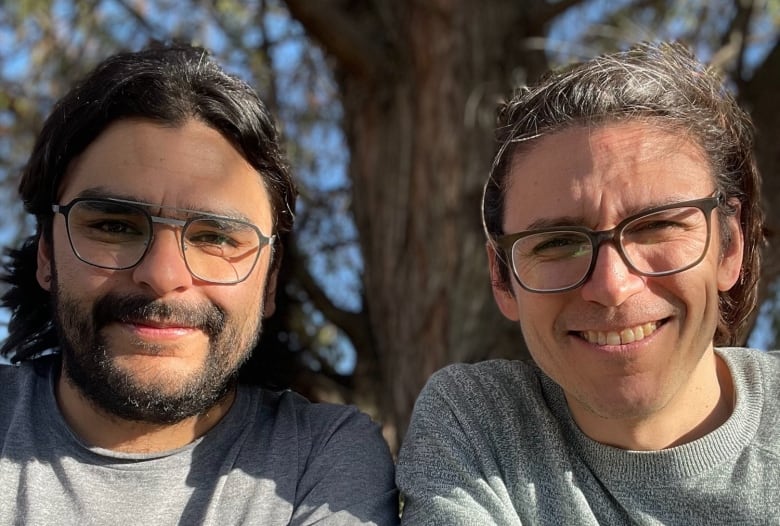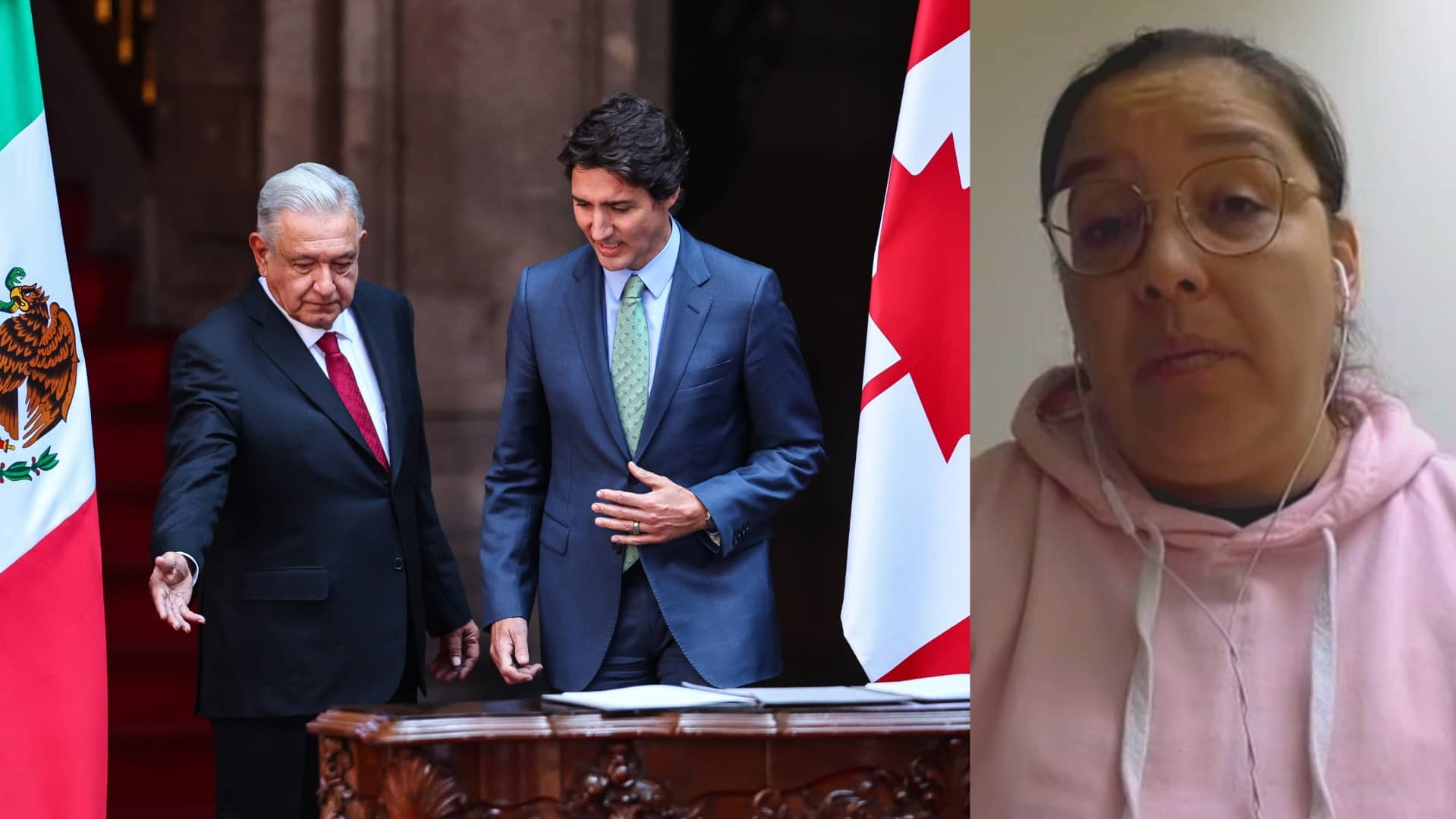Having just tucked his oldest son into bed on Wednesday evening, Sebastian Ibarra walked into his living room at home in British Columbia’s North Okanagan district and saw a text from his spouse asking if he’d seen the news.
He did a quick online search and learned that the federal government was reimposing some visa requirements on visiting Mexican nationals to curb the number of asylum claims in Canada and stem the flow of people crossing into the United States.
Taken aback, Ibarra said he thought of his parents and brother — who are supposed to visit him from Mexico this summer.
“I was disappointed,” he said. “The system [is trying] to find a scapegoat rather than actually finding a permanent, long-term solution to this issue.”
Ibarra is among those whose loved ones are affected by Ottawa’s new rules, which take effect at 11:30 p.m. ET on Thursday.
Several people who spoke with CBC News said they can understand the need to improve the country’s immigration system, but they believe the changes introduced this week could turn visitors, tourists and separated families into collateral damage.
- Does the visa requirement affect you or your family? Or do you have questions about the new rules? Send an email to ask@cbc.ca.
While CBC Radio-Canada journalist Louis Blouin described Canada’s new visa requirements for Mexican nationals as a ‘half-measure’ that does not go as far as the policies of Stephen Harper’s government that were struck down by the reigning Liberals, Blouin says these measures could create a tense diplomatic situation with Mexico.
Ibarra, then 19, arrived in Winnipeg from Mexico City in 2006. He finished his undergraduate degree at the University of Manitoba and completed his master’s degree in B.C. before taking a job in Prince Edward Island. In 2021, he and his spouse moved back west so their sons — Xavi, 5, and Niko, 2 — could be closer to their maternal grandparents.
Now in his 30s, Ibarra said he is acutely familiar with the country’s immigration system. He went through multiple visa renewals, work permits and permanent resident applications before becoming a Canadian citizen 2½ years ago.

His parents are in their 70s, and his brother is a graduate student with a one-year-old child. Ibarra said he can’t see them taking the time to apply for a visa and pay the fees just for a summer visit.
“I think that perhaps spending time with my families this summer will definitely be affected by this,” he said in a phone interview on Thursday.
“And I recognize that I’m a privileged individual looking to spend leisure time with their family, hoping to inviting them and spend time with us,” he said. “There’s other individuals that may have not seen their family for a long time due to financial constraints, [like] international students here in Canada maybe looking forward to spend the summer with their parents back in Mexico.”
On Thursday, Immigration Minister Marc Miller said Ottawa would be reinstating visa requirements for travellers from Mexico to reduce the number of asylum claims and the number of people crossing from Canada into the United States.
More than 25,000 Mexicans applied for asylum in Canada last year, making Mexico the top source of asylum claims, according to statistics from the Immigration and Refugee Board of Canada. There are currently more than 28,000 backlogged claims from Mexico currently filed with the board.
The U.S. government has been asking Ottawa to bring back the visa requirement. Conservative Leader Pierre Poilievre and Quebec Premier François Legault had also urged Ottawa to mitigate the number of asylum claims.
Luisa Ortiz-Garza, an organizer with the Migrant Workers Alliance for Change, says Canada is not living up to its obligations as a signatory to multiple refugee conventions by imposing new visa requirements for Mexican nationals. ‘People fleeing persecution and [seeking] asylum should be able to come here and claim that protection,’ says Ortiz-Garza, who lived in in Canada for more than a decade undocumented before getting her permanent residency.
Alberto Garcya, a Mexican national who holds a Canadian work permit, said he can understand the rationale behind the rule change but worries the requirement will impact visitors and tourists who have no intent to stay in the country for the long term.
“I think there’s a lot of collateral damage, and that’s the sad part or downside of it,” said Garcya, whose parents in Mexico will now have to apply for a visa to come visit him and his daughter.
Diana Castillo, a Canadian citizen, said she thinks the government made the right decision to ensure people who intend to stay permanently follow the rules, as she had to do when she emigrated from Mexico.
“We know what it’s like to wait and to have to follow protocol and rules and have everything in order to receive a permanent residency and then a citizenship. So it is a lengthy process, but everybody should should try to follow it,” Castillo said in an interview from Vancouver International Airport on Thursday.
“It’s kind of sad again because that’ll put restrictions on people who come and visit for vacation only, but I think it’s a necessary measure to take.”
Ibarra said he believes Canada bowed to political pressure coming from the U.S. during a presidential election year.
“There may be some pressures from the base of certain parties to take stronger stance on some of these issues that unfortunately have become too political and too hot,” he said.
“It’s that old saying: When the U.S. sneezes, Canada catches a cold.”
40% of people travelling from Mexico will need visa
An estimated 60 per cent of people travelling from Mexico will not actually need a visa under the new rules, according to the federal government.
Mexican citizens flying to Canada can apply for an electronic travel authorization if they have held a Canadian visa within the last decade or if they have a valid U.S. visa.
Any electronic travel authorizations that had been issued before Thursday evening are invalid unless the person also has a valid Canadian work or study permit.
People travelling to Canada without a work or study permit must reapply for authorization or apply for a visitor visa.




